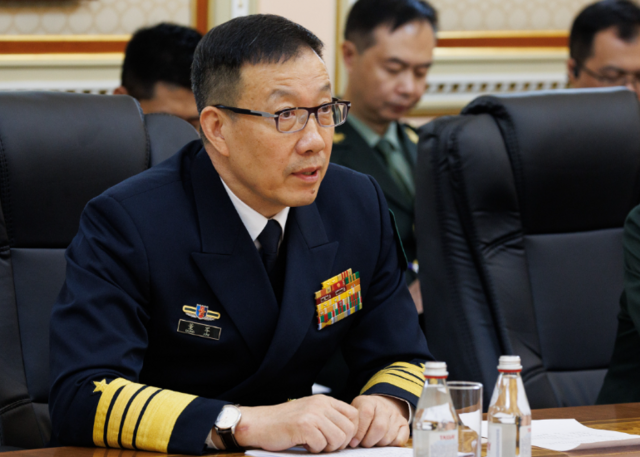China's Defense Minister, Admiral Dong Jun, is reportedly under investigation for corruption, marking him as the latest high-ranking official to be implicated in President Xi Jinping's expansive anti-corruption campaign. Dong's scrutiny highlights persistent concerns over systemic graft within China's military, the People's Liberation Army (PLA), and follows the removal of his two predecessors under similar allegations.
Reports of the investigation emerged this week, with U.S. officials confirming to the Financial Times that Dong is under probe. The specific allegations against him remain unclear, but his fall from grace adds to the ongoing purge targeting senior military officials. Beijing has not officially confirmed the investigation, and Foreign Ministry spokeswoman Mao Ning dismissed the claims as "chasing shadows" during a press briefing.
Admiral Dong, a former head of the PLA Navy, assumed the defense minister role in December 2023. As China's military diplomat, he was instrumental in fostering dialogue with foreign counterparts, including overseeing a recent thaw in U.S.-China military relations. However, his tenure has now been overshadowed by allegations of corruption, raising questions about Beijing's vetting processes for its top military positions.
Neil Thomas, a fellow at the Asia Society Policy Institute, called Dong's investigation "another spectacular failure of Beijing's internal vetting processes" on X, formerly known as Twitter. While Dong was not regarded as a member of Xi Jinping's inner circle, Thomas said the probe was "embarrassing" and indicative of broader corruption issues in the PLA.
Dong is the third consecutive defense minister to face corruption allegations. His predecessor, Li Shangfu, was dismissed after just seven months in office and expelled from the Chinese Communist Party (CCP) for bribery. Li has not been seen publicly since his removal. Before Li, Wei Fenghe, who served as defense minister from 2018 to 2023, was also ousted and charged with corruption.
A CCP statement regarding Li and Wei accused them of "betraying the trust of the party and the Central Military Commission, seriously polluted the political environment of the military, and caused great damage to ... the image of its senior leaders." The pair allegedly accepted significant bribes and manipulated personnel appointments.
Dylan Loh, an assistant professor at Nanyang Technological University in Singapore, remarked to AFP that these ongoing scandals reflect poorly on the military's leadership. "It's certainly a blow because one would imagine they will be super careful to have someone very clean in this role," Loh said. He added that ties between the business world and the PLA historically made the military vulnerable to corruption.
The latest wave of corruption probes has also targeted the PLA Rocket Force, which oversees China's nuclear arsenal. At least nine PLA generals and several defense industry executives have been removed since the campaign intensified last year. Experts have warned that internal rivalries within the military could fuel cycles of accusations, arrests, and leadership changes, further destabilizing the PLA's hierarchy.
Victor Shih, an expert on China's elite politics, noted that Dong likely oversaw billions of dollars in procurement during his naval career. "The problem is that competition for top positions is so fierce that there might be some mutual recriminations between officers," Shih told AFP, suggesting that internal disputes may have contributed to the ongoing purges.
President Xi's anti-corruption drive, which began in 2013, has reportedly led to investigations of more than 4 million CCP members. The campaign, described by Xi as targeting both "tigers and flies," has ensnared officials across all levels of government and the military. While it aims to root out corruption, critics have suggested that the campaign also serves as a tool to eliminate Xi's political rivals.
The investigation into Dong Jun comes amid heightened tensions between China and the U.S., particularly over Taiwan. Earlier this month, Dong skipped a scheduled meeting with U.S. Defense Secretary Lloyd Austin at the ASEAN Defense Ministers' summit in Laos. Beijing cited recent U.S. arms sales to Taiwan as the reason for the snub, underscoring the broader geopolitical strains.






